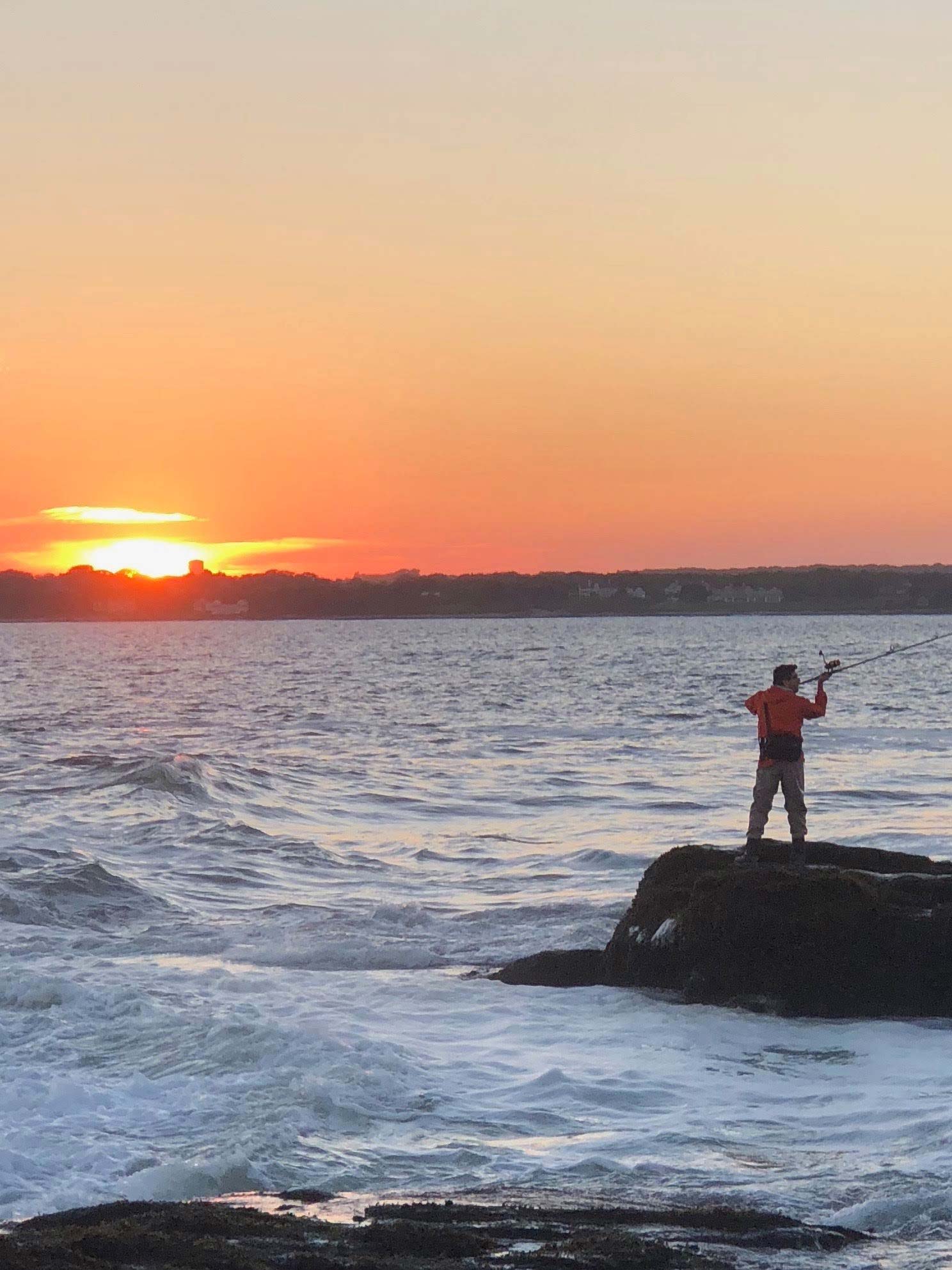
The surf can be an unforgiving place if you’re not prepared.
We are in the midst of a good (and stormy) fall run, as surf rats up and down the coast, including myself, have been out there trying to make the most of the annual migration.
It’s a great time of year to be a surf fisherman. You can feel the excitement in the air on those long, dark fall nights when the beaches become the domain of the surfcaster. Gone are the summer tourists and parking restrictions, and what is anticipated keeps us forever looking for that next great fish or epic bite. But with all this fun, also comes some danger for the angler that may forget a few safety precautions. I’m going to list a few that come to mind, and hopefully it will prevent a bad experience for any fellow caster in the months (or years) ahead
Unhooking Fish
I have witnessed some nasty injuries while attempting to unhook a thrashing fish. It happened to me also, and it is not a pleasant experience. It always seems to happen when you think you have the fish under control and it makes that last sudden movement, and all of a sudden the hook is buried in your hand or arm. The major problem with this is the barb on the hooks. Crushing the barbs on your hooks makes unhooking the fish and yourself much easier, and I would highly recommend doing just that. Also the use of fish grippers and pliers will keep your hands out of harm’s way and help keep thrashing fish under control.
Casting
With the increased participation in surf fishing in recent years, some hotspots see heavy crowds of fishermen casting in close proximity to one another. I notice a lot of anglers making casts without ever taking a single glance behind them. I have always made it a habit to look back to see if someone has unknowingly stepped into my casting radius. Even if I’m alone on the beach, it’s just a habit that I’ve never broken, that could prevent a bad thing from happening. If you really think about the forces at play when we load up the road to fire a cast, it could do a lot of damage! I’ve had people just walk up behind me without any concern for their of safety or my space and if I hadn’t turned to look they might have found themselves attached to my plug as I was trying to rocket it 100 yards from the shoreline! That wouldn’t feel good!
Wading
Wading into the surf safely is a very important topic. The surf zone can be an unforgiving place, if you don’t pay attention. Big waves can knock you down, but also, the power of a receding wave can knock you off your feet and sweep you out away from the beach! This is no joke! Take time observe the surf conditions before wading in. If you’re wearing waders, make sure your top is secured with a belt and cinched tight.
Soft sand is another danger that is rarely talked about. One night I walked out onto, what looked like, hard-packed sand, but when I stepped onto it, the bottom gave way like quicksand! If the surf had been big or there was a strong current, I could have been in big trouble. Test the sand before wading out onto a sandbar to make sure it’s stable. And if you have to cross a trough to access the bar, make sure you’re certain of the tide stage and leave yourself plenty of time to get back to shore, even if you’re into fish!
Jetties
Let’s face it, jetties are great places to fish; whether protecting the mouth of an inlet or just jutting out into the ocean. The thing they all have in common is that the rocks can be slippery and staggered and stacked in ways that require caution when walking and landing fish. Don’t even attempt to access a jetty without proper footwear; cleats or spikes such as Korkers are an absolute must. If you’re new to the spot, scope out the place in daylight before venturing out at night. Look for good rocks to stand on and plan out your path down to the water where you can safely land fish. Many of the injuries suffered on jetties have happened because someone rushes down to grab a fish, slips and takes a bad fall. In the worst cases this has resulted in the caster being picked up by a wave and carried into the inlet current, a situation that’s very difficult to survive. Please be very careful on jetties, know your limitations and don’t extend yourself beyond what you can physically handle, no fish is worth your life.


